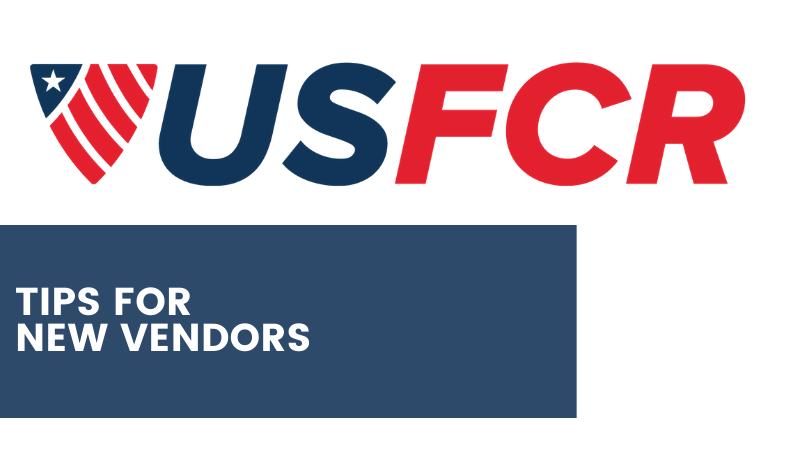Proper Registration
A new vendor’s contracting strategy begins with complete and proper registration. The federal government can’t award a contract or make payment without proper SAM registration. All information should be current, accurate, and match what has been submitted previously to D&B and the IRS.
Many new vendors, especially small businesses, slip up when it comes to selecting classification codes for their products and services. Too few codes may exclude future opportunities; too many codes makes the vendor seem like they’re taking on more than they can handle. New vendors often make mistakes with “optional” registrations. Skipping these portions often disqualifies them from potential opportunities or looks bad to contracting officers. For instance – although vendors can choose not to list a Past Performance POC, many purchasing officers will not consider vendors who do not have one included on their SAM. To avoid these pitfalls, new vendors should work with a qualified and experienced third-party registration service when completing their SAM registration.
SBA Programs
Don’t underestimate the benefits of special programs that the Small Business Administration offers. The SBA’s programs range from simple self-certifications to the intensive 8(a) Business Development Program. Be careful that you actually qualify for the set-asides you self-certify for! Misrepresenting your company’s status can have serious repercussions – suspension from contracting, fines, and even imprisonment are all potential possibilities.
Aggressive Marketing
Small businesses just starting in federal contracting are strongly urged to pull out all the stops regarding marketing. New vendors typically have an uphill battle when they lack past performance, so it is vital that no opportunity to showcase their capabilities is missed. Every little bit helps. Email marketing, establishing a profile on all the official procurement websites, launching an accessible online brochure, and researching past contracting trends can all tip the scales in your favor.
Networking for No-bid Contracts
If the $25,000 and up contracts listed on FedBizOpps are a little out of your league, you should look for smaller “no-bid” contracting opportunities. Many vendors ask where the website for those contracts is located. The secret is – there is none. While these contracting opportunities may be publicized in local newspapers or agency websites, most are never advertised. Contracting officers instead contact vendors directly to find sources.
There are only two ways they can find you to offer you a no-bid contract: either by pulling your name out of a phone book or because you contacted them and built a relationship with their office first. This is one of the most powerful tools for small businesses entering the federal market. We recommend you:
- Find every opportunity to meet face-to-face with the decision-makers in your region.
- Schedule appointments with OSDBU officials.
- Attend contracting and industry events.
- Call contracting officers who have recently awarded contracts in your industry.
If you have the capabilities and conduct yourself professionally, contracting officers will take note and let you know when the next opportunity is available.
Subcontracting
A lack of past performance is one of the biggest hurdles for small businesses just getting started in government contracting. Especially if they’re establishing their business, they may not have enough previous work to reference back to.
Vendors should seek subcontracting opportunities in these situations rather than trying to win prime contracts. Most large companies do not perform all the work on the contracts they win. In fact, for certain-sized contracts, they may be required to subcontract out work to small businesses in order to stay in compliance with Federal Acquisition Regulations. Subcontracting allows smaller vendors to get their feet wet, learn about federal contracting procedures, and build vital past performance.
Follow up on Rejected Bids
Even a rejected bid can be transformed into an opportunity by new vendors. Always request a follow-up from the contracting officer after your bid is rejected. If you ask respectfully and professionally, most purchasing officers will explain why you did not win the contract. Whether it was a space skipped over on a form, an error in pricing, or a lack of experience, take notes to refer to when you submit your next bid.
To speak with a Contracting Specialist, Call: (866) 216-5343


